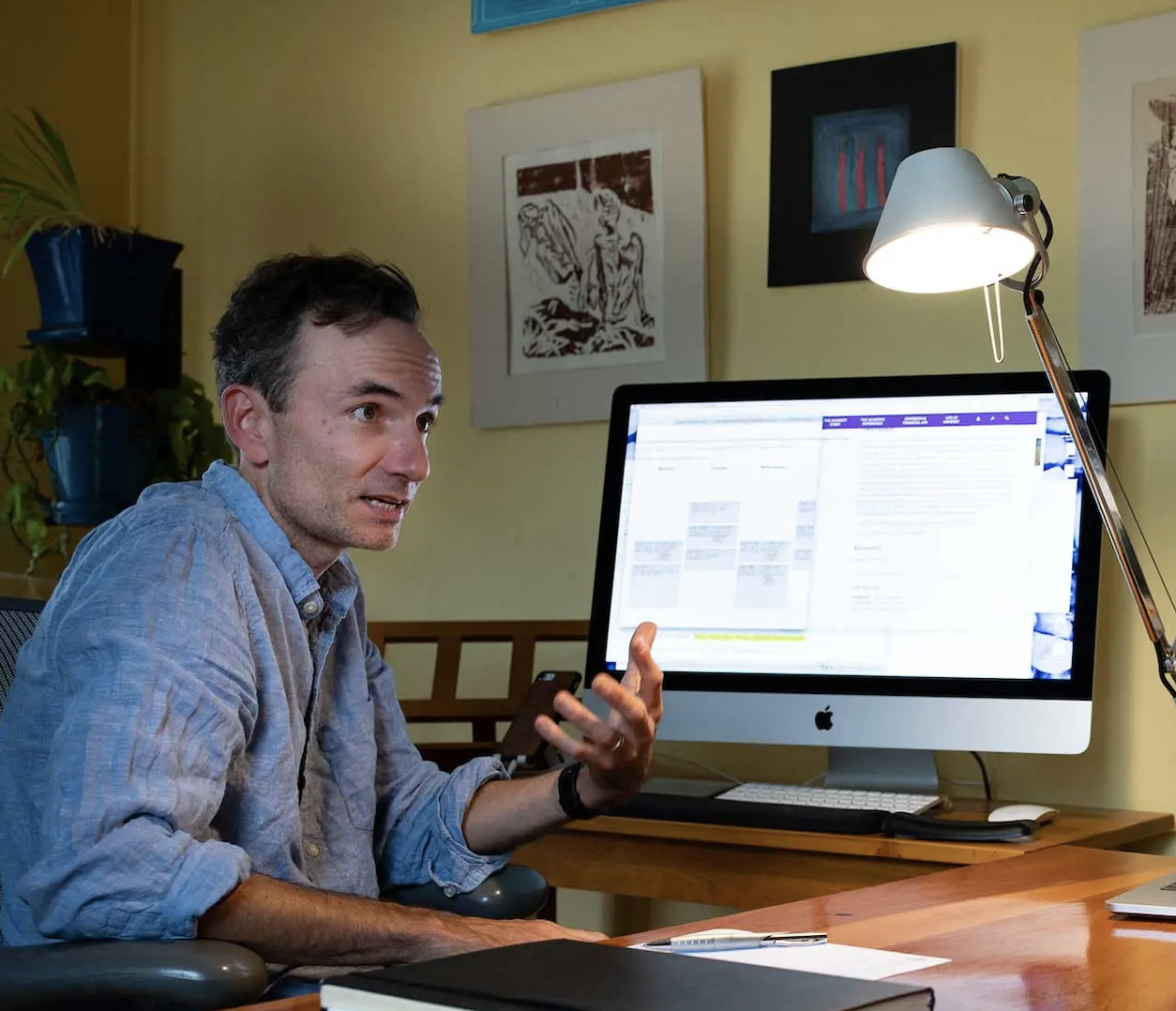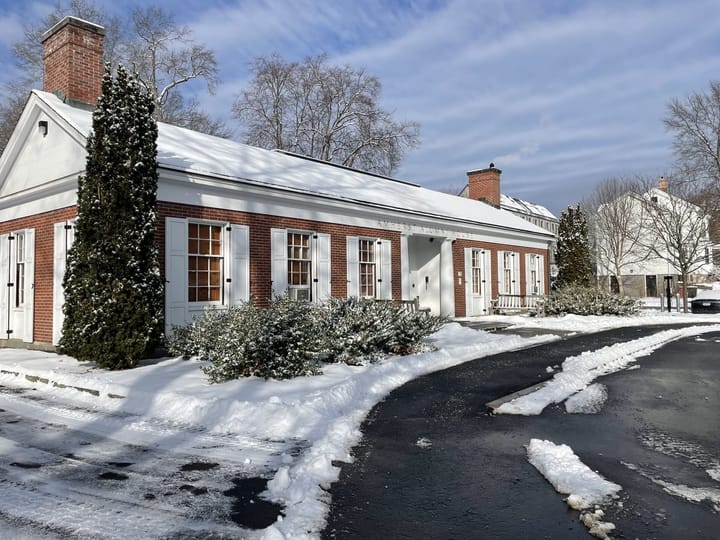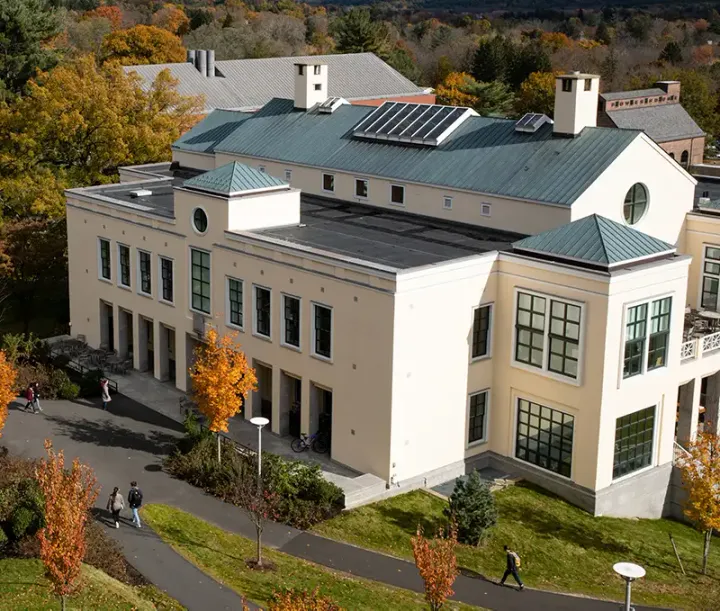Sitze, Elliott, Discuss Academic Freedom in the Wake of Trump’s Inauguration
In a webinar open to students on Monday, Professor of Law, Jurisprudence, and Social Thought Adam Sitze defined academic freedom, explored its history, and discussed the ways in which it can be protected in today’s political age.

At a webinar on Monday, John E. Kirkpatrick 1951 Professor of Law, Jurisprudence, and Social Thought Adam Sitze addressed the history of academic freedom and its position in today's polarized political climate. The event, titled “Academic Freedom: Past, Present, and Future,” was moderated by President Michael Elliott.
The inauguration of President Donald Trump has brought higher education institutions concern about challenges to academic freedom, especially after Trump signed several related executive orders, including the Jan. 21 “Ending Illegal Discrimination and Restoring Merit-Based Opportunity.” The order gives the Attorney General and the Secretary of Education the ability to begin dismantling Diversity, Equity, and Inclusion (DEI) programs in higher education institutions that accept federal grants or loans.
Sitze, who just finished writing a book on this topic, began the talk by defining academic freedom as “the freedom of students and teachers to follow facts where they may lead, even and especially if that should be unpopular to majorities.” Academic freedom in the U.S., Sitze explained, can be understood as “a composite of traditions from judicial independence and religious liberty, aiming to resist both church and state.”
Sitze outlined three trends endangering academic freedom.
First, the development of new technologies, such as the internet and smartphones, is “modifying the ways we think about learning, teaching, research and publication.” Whereas universities used to be viewed as the primary disseminators of research and knowledge, the widespread availability of information online undermines their public trust.
Second, deep polarization between political groups has caused conversations about university politics driven more so by reactionary emotions than by the desire to hold thoughtful discussions. In this way, Sitze said, these debates are “less reflective [and] posed in terms of heat and not light.”
Third, Sitze suggested that the expansion of high-tech weaponry, such as the development of nuclear warfare, has brought into question whether academic freedom and the pursuit of new knowledge are worth their risks.
Sitze argued that academic freedom is different from free speech, which “doesn’t draw any distinction between true and false ideas.” Essentially, free speech and the First Amendment protect all statements equally. “I can go out on the streets of Amherst and say the Earth is flat [and] I cannot be put in jail for uttering a false statement,” Sitze explained.
Academic freedom, on the other hand, must be correct. Not all statements are equal, Sitze explained. “[Academic freedom] is built on the inequality of status between differing ideas. Faculty routinely make judgments based on the idea that some statements are more valid than others. That is the entire premise of grading.”
The conversation turned to how academic freedom can be protected within the college and the role that faculty could play in doing so. Sitze emphasized the importance of insulating classrooms from the whims of politicians.
“I think we [faculty] have a vocation, we have a calling, and the calling is that we have students who are eager to know and want to know,” Sitze added. “We have to speak to that desire in a free, kind of volatile, radical, unpredictable way every time we step into the classroom.”
Correction, Feb. 5, 2025: A previous version of this article misstated that the event was held on Friday. The event was held on Monday.





Comments ()